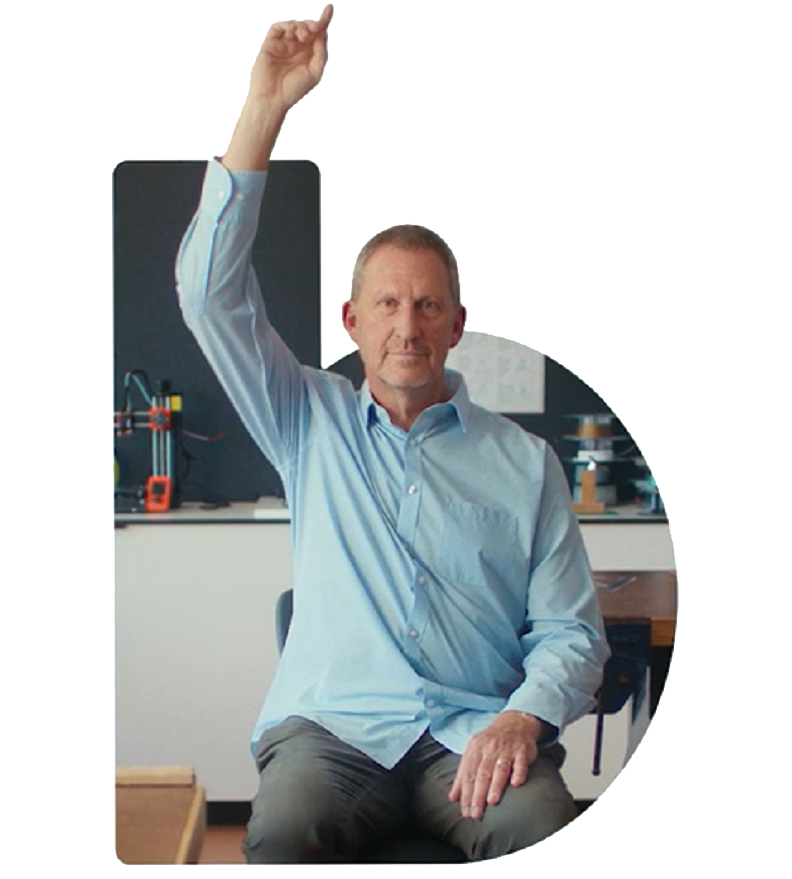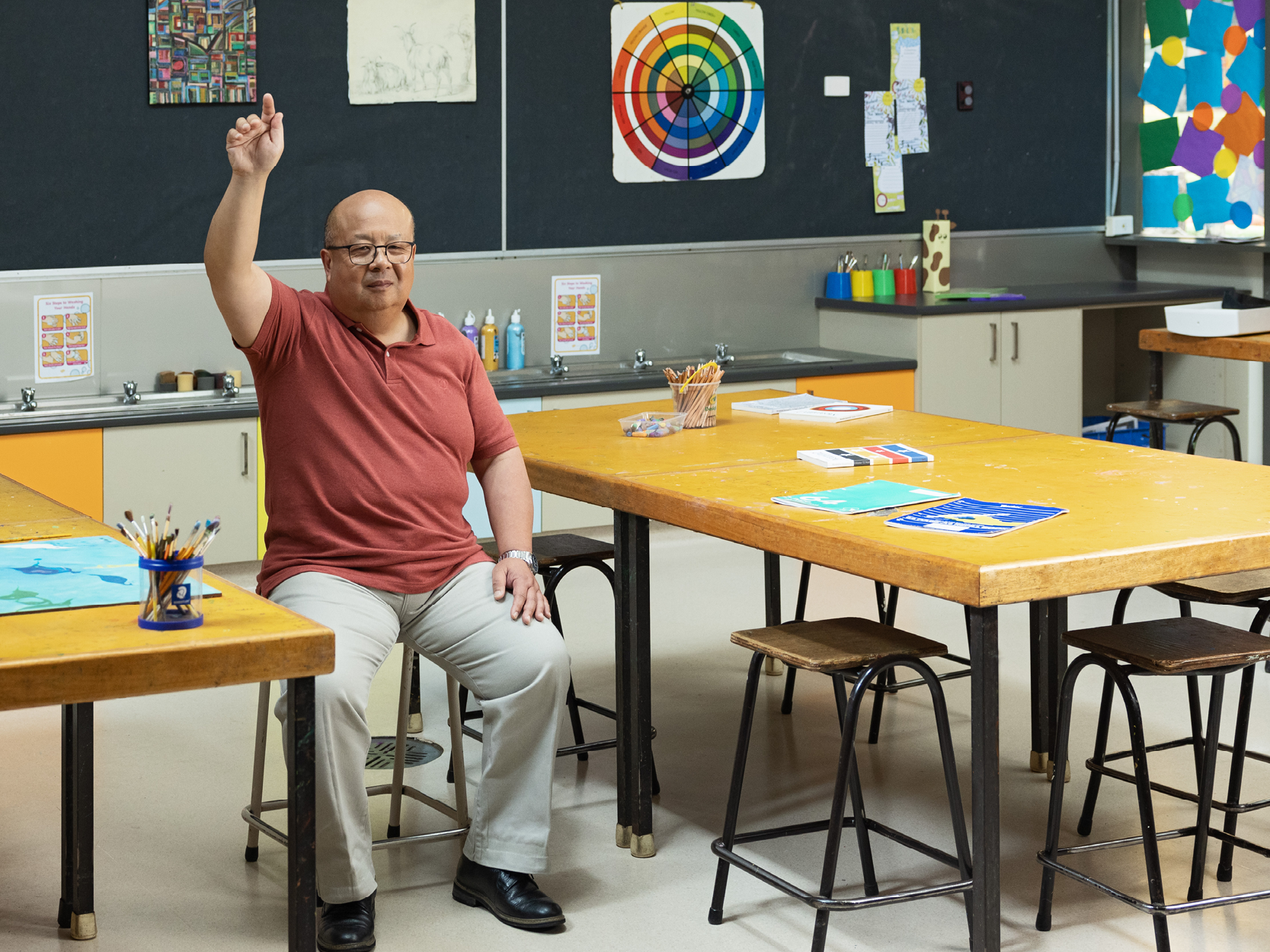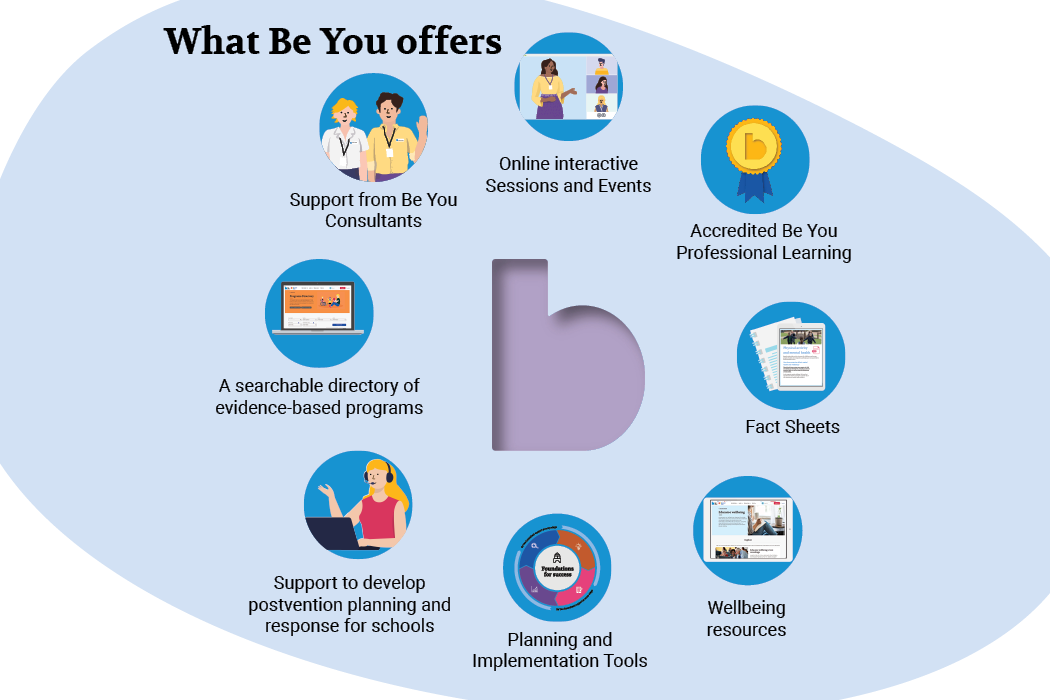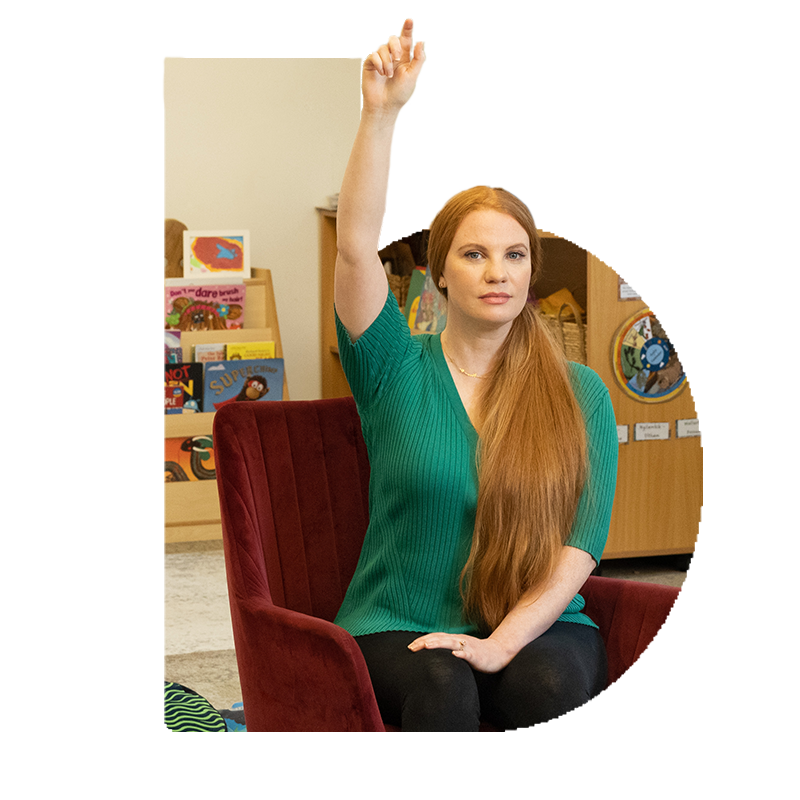Got a question? Raise your hand.
Be You is the national mental health and wellbeing initiative for learning communities in Australia.
Context matters, which is why Be You is different from a wellbeing program. Be You offers a flexible, whole learning community approach that builds on what you’re already doing to support the mental health and wellbeing of children, young people, educators and families in your learning community.
Be You supports educators and leaders working in early learning services or schools, as well as those in pre-service or training, to develop a positive, inclusive and resilient learning community where every child, young person, educator and family can achieve their best possible mental health.
Context matters, which is why Be You is different from a wellbeing program. Be You offers a flexible, whole learning community approach that builds on what you’re already doing to support the mental health and wellbeing of children, young people, educators and families in your learning community.
Be You supports educators and leaders working in early learning services or schools, as well as those in pre-service or training, to develop a positive, inclusive and resilient learning community where every child, young person, educator and family can achieve their best possible mental health.

Your mental health and wellbeing questions answered
-
Is there any way I can support the young people in my care?
You are in a powerful position to notice and support children and young people who might be showing signs of mental health issues.
Having the skills to recognise when a child or young person needs support, and how to appropriately discuss your concerns, is crucial to helping them reach their full potential.
Be You has tools and resources that can help you:
- Explore the modules in the Early Support domain and discover how to recognise behaviours which might indicate early signs of mental health issues, how to talk to children and young people about these issues, and how to provide appropriate and timely support.
- Read our Mental health support Fact Sheets on when, how and where you can find help or support help-seeking.
- Attend a Be You Sessions and Events to gain a practical understanding of mental health and wellbeing in learning communities, guided by experts
- Watch how Kids Capers North Lakes’ wellbeing project blossomed into something truly transformational.
- Register your learning community today and gain access to a Be You Consultant who can help your early learning service or school take its first steps towards becoming a mentally healthy learning community.
-
How do I tell the difference between depression and being sad?
Mental health and mental health conditions are different and exist on a continuum. Mental health changes over time in response to different stresses and experiences.
You're not responsible for providing mental health diagnoses, assessment or treatment. But it's important to be aware of your obligations and duty of care if you have concerns about a child or young person's mental health – and how to collaborate with your colleagues to address those concerns.
You are doing your job by promoting positive mental health in your practice as an educator, monitoring children and young people who may require more attention and support during unsettled periods, and identifying and raising concerns for those who may need more targeted assistance by leadership, wellbeing teams or external mental health professionals.
Follow these four steps, and get started today:
- Learn about the Be You Mental Health Continuum.
- Complete the Mentally Healthy Communities modules to better understand the concepts of mental health and wellbeing in children and young people.
- Attend an Implementation Session to engage in professional conversations with Be You Consultants, and other educators about how to inquire about someone's wellbeing, how to provide support.
- Register your learning community today and gain access to a Be You Consultant who can help your early learning service or school take its first steps towards becoming a mentally healthy learning community.
-
How do I talk about mental health with young children?
Building a mentally healthy community is key to enabling children and young people to achieve their best possible mental health. Through everyday interactions, early learning services and schools are well-placed to promote mental health, wellbeing and resilience to children and young people.
A mentally healthy community understands what mental health is, and why it is so important for our children and young people. It is characterised by strong supportive relationships between the people of that community – where everyone can be who they are and achieve their best possible mental health.
As an educator, you have a central role and can make a big difference in influencing children and young people's mental health and wellbeing through positive mental health promotion.
These Be You resources can help you get started:
- Visit our Mentally Healthy Communities domain and explore the accredited Professional Learning modules to develop your skills.
- Find out how Be You is helping Ludmilla Primary School, one of Darwin's most culturally diverse primary schools, build a mentally healthy learning community, starting with building knowledge around social and emotional learning.
- Register your learning community today and gain access to a Be You Consultant who can help your early learning service or school take its first steps towards becoming a mentally healthy learning community.
-
How do I teach students to be resilient?
Building resilience helps children and young people cope with everyday difficulties and develop the basic skills and habits that will help them deal with challenges later in life.
Within your learning community you can create opportunities using Be You to help children and young people develop their social and emotional (SEL) skills and grow into resilient adults.
Explore more with these Be You tools and resources:
- Discover the modules in the Learning Resilience domain to build an understanding of SEL and why it's important for mental health and wellbeing. You'll learn how to intentionally teach SEL skills and foster resilience in education settings.
- Start building knowledge with our social and emotional learning Fact Sheets.
- See how Discovery Early Learning Centres in Tasmania have used Be You resources to encourage children to build resilience and connect with each other at Bush Camp.
- Join other educators and Be You consultants to discuss affirming the importance of SEL and resilience, embedding SEL strategies, and empowering young children at one of our Be You Sessions and Events on resilience. This includes our upcoming Be You Virtual Conference.
- Register your learning community today and gain access to a Be You Consultant who can help your early learning service or school take its first steps towards becoming a mentally healthy learning community.
-
Is it normal to feel totally alone in this?
Educator wellbeing is best fostered when it is approached holistically. This means individuals, leaders, early learning services, schools and education systems all build and strengthen protective factors that promote educator wellbeing.
Your wellbeing is essential for effective teaching, learning and looking after the wellbeing of others. While self-care is important, educator wellbeing is about more than individual strategies.
The following Be You resources can help look after your mental health and create a positive environment for the children and young people in your care:
- Discover Educator wellbeing tools and resources to help you and your learning community build and maintain educator wellbeing, including the new Beyond Self-Care: An Educator Wellbeing Guide and Wellbeing Tools for You.
- Watch what happened when Coolbinia Primary School's Mental Health and Wellbeing Coordinator, Cathy Smith, searched for an initiative to allow staff to take ownership of their wellbeing programs and began to implement the Be You framework in her learning community.
- Attend the Be You Virtual Conference to connect and grow together, discovering and sharing strategies to build resilient, inclusive, and thriving learning communities. Implementation sessions around wellbeing topics can also support understanding and normalising of educator wellbeing.
- Register your learning community today and gain access to a Be You Consultant who can help your early learning service or school take its first steps towards becoming a mentally healthy learning community for all.
-
How do I spot the early signs of mental health issues?
One in seven children between the ages of 4 and 17 will experience a mental health condition in any year.
You play a vital role when it comes to supporting mental health and wellbeing in your learning community. Because you observe the same group of children and young people, every day, you are in a unique position to notice when they don't appear their normal selves.
Your role in providing early support to a child or young person isn't about making a diagnosis of a mental health condition. It's about noticing and recognising the signs and symptoms that might indicate the presence of mental health issues, and the potential need for professional support. Identifying when children and young people need extra support comes down to observations and having the fundamental mental health knowledge to reflect and act on those observations.
Find out more from these Be You resources:
- Discover our BETLS Observation Tool, a template for gathering and documenting information and observations about a child or young person.
- Explore the Mental health issues and conditions Fact Sheets to learn more about various cognitive, emotional and behavioural issues that may cause concern or distress, such as body image, separation anxiety, school refusal, anxiety and depression.
- Read how York District High School used resources such as the Action Team Handbook and their Be You Consultant's support to transform emotional wellbeing one student at a time.
- Register your learning community today and gain access to a Be You Consultant who can help your early learning service or school take its first steps towards becoming a mentally healthy learning community.
-
How do I talk to families about mental health?
Families are a major influence on the mental health and wellbeing of children and young people. Supporting families to promote mental health at home can provide children and young people the best opportunity to grow into independent, healthy and resilient adults.
By building and nurturing respectful relationships with families, you can support them to promote positive mental health and wellbeing at home, and know when to seek help. It also puts families more at ease in accessing support when needed.
Building partnerships with families creates a two-way conversation between families and learning communities.
See how Be You tools and resources can support your learning community:
- Explore the Family Partnerships domain on how to build meaningful partnerships with families to support the mental health and wellbeing of children and young people.
- Read our Relationships Fact Sheets on topics such as families, cultural diversity, communication and bullying.
- Watch how Sacred Heart Early Learning Centre used Be You to establish and nurture authentic and collaborative relationships that has allowed children, educators and families to feel safe, secure and thrive.
- Register your learning community today and gain access to a Be You Consultant who can help your early learning service or school take its first steps towards becoming a mentally healthy learning community.


Be You made for you
Discover how early learning services and schools across Australia are implementing Be You to benefit their learning communities.

Be You is free, flexible and accredited
Join nearly 6,000 early learning services and over 7,000 schools around Australia and register as a Be You Learning Community, giving you access to the full range of tools, resources and support from our team of Be You Consultants. You can also register as an individual, like over 130,000 educators already have, in growing a mentally healthy generation.